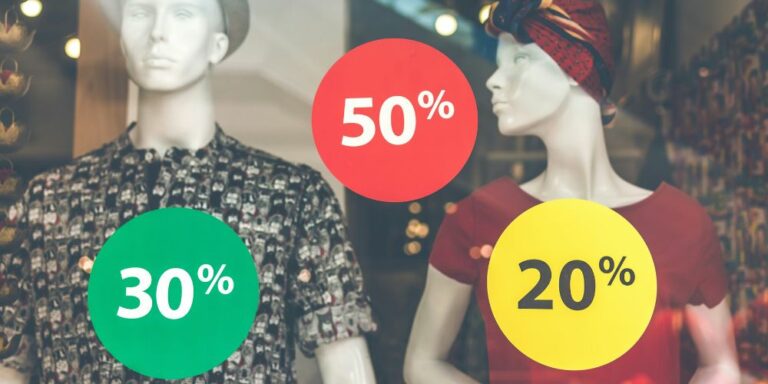We’ve now reached that time of year when everybody’s about to start scrambling around the shops – whether those are physical supermarkets or online stores. With Black Friday right around the corner and Christmas rearing its jolly head soon after, consumers are about to go wild to get their hands on the best deals on gifts for the holiday season.
Listen, I’ve been there. You don’t want to be scouring the empty, dusty shelves in your local Curry’s on 23rd December in a frantic attempt to nab a last-minute present for your special someone. But no matter how desperate you are to get ahead of it and avoid the panic of late December gift shopping, keep your wits about you. Black Friday may be an exciting opportunity to save some pennies, but there are a lot of fraudsters out there hoping to capitalise on just that.
The dangers of Black Friday
Shopping on Black Friday is like swimming during shark season. Think about how many predators will be lurking online, waiting for their next victim. It’s the perfect opportunity for cybercriminals to take advantage of desperate shoppers who might not think twice before hastily tossing their bank details their way. During this busy and frantic time of year, a lot of people may be in a rush to secure a purchase before the sales end, or hurrying to grab something while it’s still in stock. And criminals are counting on this. This is why it’s even more important than ever to know how to spot red flags and avoid becoming prey to these conniving scammers.
Thousands are scammed in the holiday period
According to this article from The Guardian, over 16,000 reports of online shopping fraud were recorded during the last festive season (between November 2023 and January 2024). The average loss per victim was £695, a brutal blow to the everyday consumer just trying to find a good deal on a new TV or a pair of trainers. Victims lost a whopping total of over £11.5 million to fraudsters in this time. Criminals even used artificial intelligence was as a tool to ploy unsuspecting shoppers.
Interestingly, almost half (43%) of these reports made to Action Fraud during this period included mentions of a certain social media platform, and mentions of online marketplaces showed up in almost 20%. Buying from unverified strangers only enhances the risk of being caught in a scam, as you don’t know for certain who the person on the other end of the transaction is, or if they’re planning at all to actually deliver on what you’re paying for.
"If you come across anything that doesn’t feel right – stop what you’re doing, break contact, and do not click any links."
Lord Hanson, Fraud Minister

Online marketplace scams
When I was trying to sell my old car on Facebook Marketplace, it was all a bit quiet. Nobody seemed interested in the couple of weeks that I kept the listing up before giving up and selling it elsewhere. I just wanted the car gone, and so a message from somebody showing interest in taking it off my hands was always exciting. It’s no surprise, then, that when I finally received one, it was a little tempting to take the offer. But it soon became clear that this person had no interest in having my little car. Shame, really – it was quite a nice one. They would have liked it.
The conversation with this person didn’t last long. They almost immediately told me that they wanted the transaction to be made via bank transfer. This made me uneasy, as I personally always prefer to be paid in cash to avoid giving my data away to someone I don’t know. Another red flag was raised when I visited this person’s profile and saw that not only was the profile only a few days old, but this individual apparently lived in the Philippines. Not sure how I’d get the car all the way over there…
I’m not quite certain what this person was hoping to achieve exactly. But I’m fairly confident that sending me the money and flying over from the Philippines to drive my car back across the ocean wasn’t their plan.

If it looks fishy, it probably is
So, what I’m saying here is that you should trust your gut. Always do your homework. It doesn’t matter what side of the transaction you’re on. Whether you’re the buyer or the seller, always check out the other party to ensure there’s nothing shady going on.
Do they seem like a real person? On close inspection, does what they’re selling look legitimate? And are they refraining from suggesting dodgy-sounding payment methods? Only once you’re sure that a transaction is safe and trustworthy should you go through with it. Never take the risk.
Always check reviews
A good habit to get into is to check out reviews of the seller on credible review sites. This is to see if they’ve had positive feedback. If they do have stellar reviews, are they actually plentiful and authentic? Because if there are only two 5-star reviews from John Smith and Jane Jones, those ratings may impress you at first glance, but it’s doubtful that they’re actually genuine. What you’re really looking for is closer to a healthy list of reviews ranging anywhere from 3 to 5 stars. Hopefully, with no mention of shady behaviour or unfulfilled orders in sight. This is more realistic! Read through these properly and if the seller is safe, then you’re good to go.

Staying out of trouble on Black Friday
So, how can we avoid being scammed?
Unfortunately, due to technology made possible by AI in some cases, scams are becoming more sophisticated by the day. Therefore, there’s not an answer to this question that can guarantee your safety from becoming another scammed shopper. Identifying fake listings and fraudulent sellers is only going to get more difficult as these criminals learn and their scams grow more sophisticated.
However, what we can do is know what to look out for. This Black Friday, and going into Christmas, remember to second-guess everything while buying your presents online. Be sceptical. Be careful. Because people on the internet can’t be trusted. Unless they’re a data privacy advisory business writing a helpful article about how to avoid online shopping scams. You can trust them.
If your organisation needs some support with data protection, privacy, AI and/or the GDPR, we are here to help you. We provide easily accessible and cost effective data protection support to organisations of all shapes and sizes.
Get in touch today by calling 0203 3013384, emailing us at info@dataprivacyadvisory.com, or filling in a contact form.
Your data is our business.









